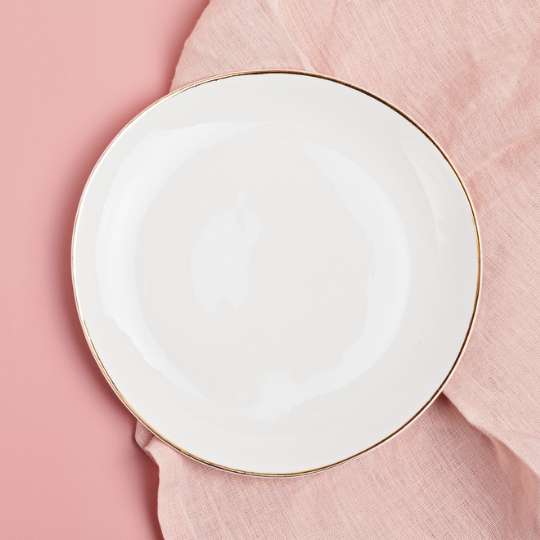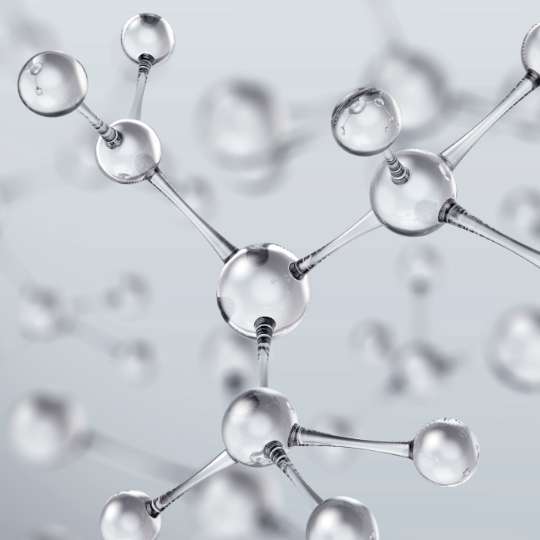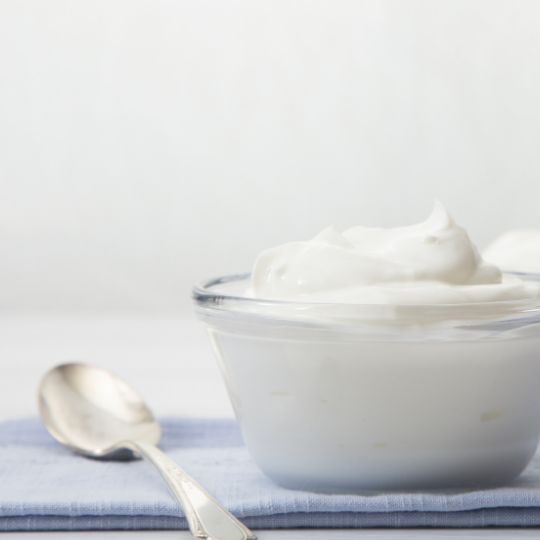

Why do we need skincare supplements?
Let’s be honest, for most of us getting our recommended 5-a-day is easier said than done. And unfortunately, even if we reach the target, that’s not necessarily enough to ensure your skin and body is getting all the vitamins, minerals and nutrients it needs.
“To anyone who says we should be getting enough vitamins from our diet, I don’t believe that,” says Shabir Daya, pharmacist and co-founder of Victoria Health. “Unless you’re only eating things that are grown locally they will have oxidised before they reach the supermarket, and then they’re sitting on the shelves. We’re just not getting the nutrients we were several decades ago.”
There’s a case for debunking recommended daily amounts (also known as RDA’s) too. “The recommended daily amounts were set several decades ago,” explains Shabir. “But this was only to prevent disease, so, for example, a lack of vitamin C would cause scurvy. They found that if you took 30-60mg of vitamin C a day you would end up not having scurvy, but that doesn’t mean it’s the optimum dosage.”
Within our bodies there is a priority list, and when we absorb nutrients and vitamins they’re sent first to our vital organs. Skin is right at the back of the queue, meaning that if you’re not getting what’s needed from your diet, there are barely any scraps left for our complexions. Think of it like trying to share a single bag of crisps with a party of 20 people. Taking skincare supplements will help to compensate, evening the playing field so that there’s enough to go around.
It’s also worth noting that skin supplements are not a substitute for good skincare or a balanced diet. For a healthy complexion, you’ll need to be taking a 360° approach.
Best supplements for skin by concern
Finding the best supplements for skin will depend on your skin type.
If you have dry skin…
Dry skin is a condition where the skin is lacking in oil. This is different from dehydrated skin, which is lacking in water, and is a longer-term problem. The good news is that there are supplements for skin that can help.
“If you suffer from dry skin conditions, whether that’s exceedingly dry skin, eczema, psoriasis or dermatitis, you would benefit greatly from the use of ceramides,” says Shabir. “Ceramides are tiny oil particles called lipids that form the mortar between the cells.” They’re there to protect the skin from dehydration, preventing moisture from slipping out through the cracks.
“If you have a breakdown of ceramides from things like excessive washing, cold weather or simply due to an inflammatory diet, then you will end up with dry, rough skin,” adds Shabir. “Ceramide supplements are putting the lipids back into the skin.” With these ceramides in place, the skin is more able to defend itself, blocking out external aggressors like pollution and keeping moisture in.
You could also consider omega 7. “Omega 7 is mostly used for dry skin, because it is required to make ceramides,” adds Shabir. “It can be used for all dry skin conditions, including dry eyes as well as dry skin on the face or body.”
If you have oily, congested skin…
The key signs of a congested complexion are prominent pores and blemishes, some of which may be brewing beneath the surface. It tends to come hand in hand with oiliness, an excess of which can contribute towards congestion. Shabir recommends a double-pronged approach of burdock root and zinc to reduce congestion and calm breakouts.
“Burdock root has anti-inflammatory and antimicrobial properties,” says Shabir. This enables it to help with both the redness and anger that comes with breakouts, as well as the microorganisms that can aggravate the problem. “We also know that it helps purify the blood of toxins.”
Noticing that your blemishes are taking longer to make themselves scarce? You could benefit from the addition of zinc. “Zinc is great for healing wounds,” says Shabir. “It’s often considered the traffic warden of the body. Zinc dictates enzymes and forms the enzymes that take nutrients to the peripherals that need them most – so if your skin needs something quickly when you cut yourself. Notice that baby bottom cream’s all contain zinc to calm down inflammation and encourage the healing of our tissues.”
If you have fine lines and wrinkles…
Fine lines and wrinkles are a result of depleting levels of collagen and elastin, which naturally fade as we age. Or collagen levels start to deplete from age 25, so it’s never really too early to start protecting this precious protein.
“Collagen supplements are aimed at people who want to target fine lines, loss of elasticity and wrinkles,” says Shabir. They aim to replenish lost stocks so the signs of losing collagen, like fine lines, don’t show.
Collagen supplements can be expensive, so if you’re on a budget you may want to consider vitamin A as an alternative. “Vitamin A over a period of time will improve skin,” Shabir explains. “It enhances cell renewal so you’re getting fresh, healthy cells on the top layer and it’s preventing inflammation at the same time.” Double-down by applying a topical retinoid too (a derivative of vitamin A) for an extra boost.
If you have tired skin…
Is your skin giving the game away? Or, even more frustrating, looking weary and lacklustre when actually you feel anything but? Vitamin C is the answer.
As we have already discussed, there is a common misconception that we’re getting enough vitamin C from our diet. But in fact, we’d need to eat an unattainable amount of oranges to give our skin what it needs to keep itself looking fresh, awake and even.
“In my opinion, vitamin C is one of the key vitamins as it’s involved in numerous functions within the skin and the body,” says Shabir. “It is involved in maintaining healthy, bright complexions, as well as aiding with collagen production.” That’s right, taking vitamin C will also help to make more collagen, so skin appears plumper too. Win-win.
If you have dehydrated skin…
Dehydrated skin is skin that is lacking in water. It can be triggered by everything from changing seasons to using the wrong skincare and will leave skin tight and dull, with fine lines exaggerated.
We all know the benefits of hero hydrator hyaluronic acid in skincare, but taking it in supplement form will not only improve your complexion, but your bodily processes too. Remember, everything works better when it’s hydrated – imagine trying to run a marathon without a sip of water. Hyaluronic acid is abundant in our bodies, found everywhere from our cartilage to our eyes, but its natural levels decline as we get older.
“From a skin point of view, hyaluronic acid absorbs approximately 1000 times its own weight in water,” comments Shabir. “So what it does is it plumps up the skin cells.” With increased levels of hyaluronic acid skin will look fresher and more youthful, with fine lines less prominent.
“It’s also going to help with your joints. So if you’re experiencing creaky, painful joints, they are caused as the cartilage between the joints is composed primarily of hyaluronic acid which has diminished with age. Then your joints start to come closer, almost rubbing together.” For this reason, you might notice more mobile, less sore joints as a welcome byproduct of taking hyaluronic acid for your skin.
Read, watch and be inspired...


